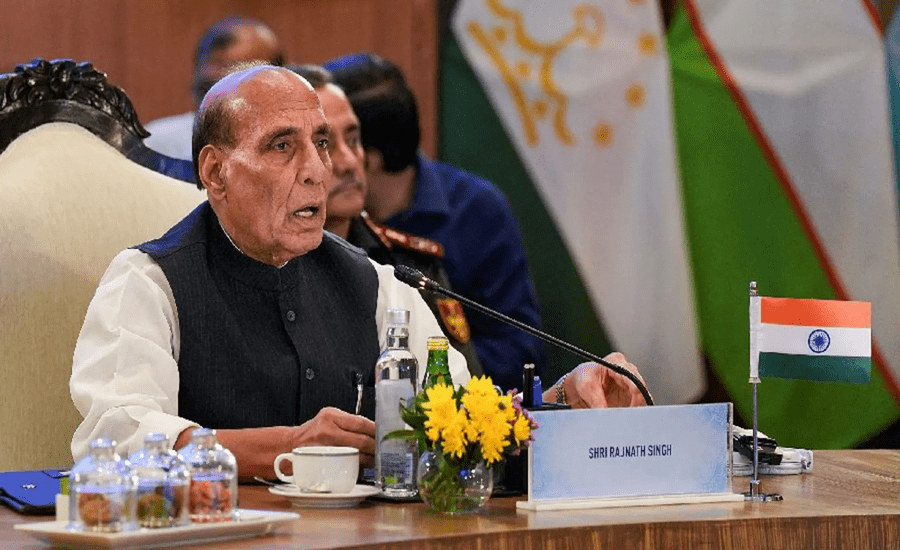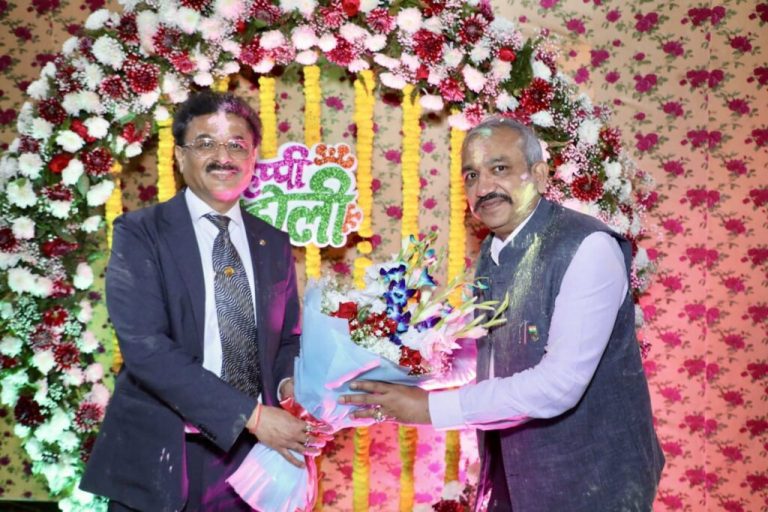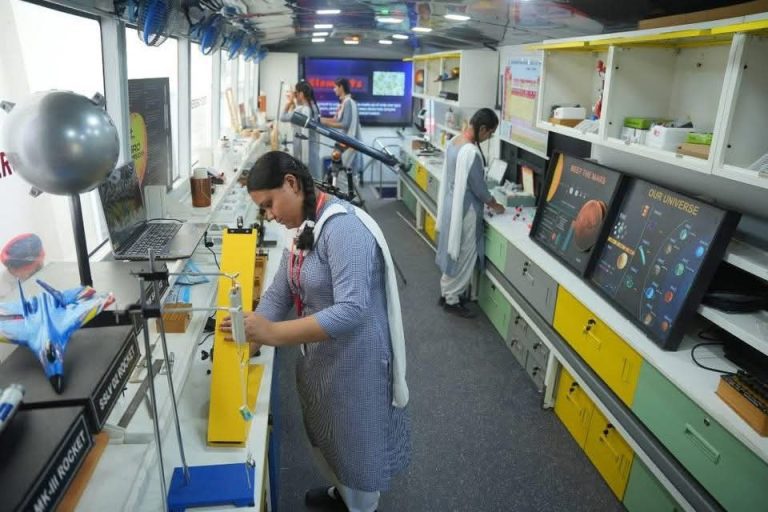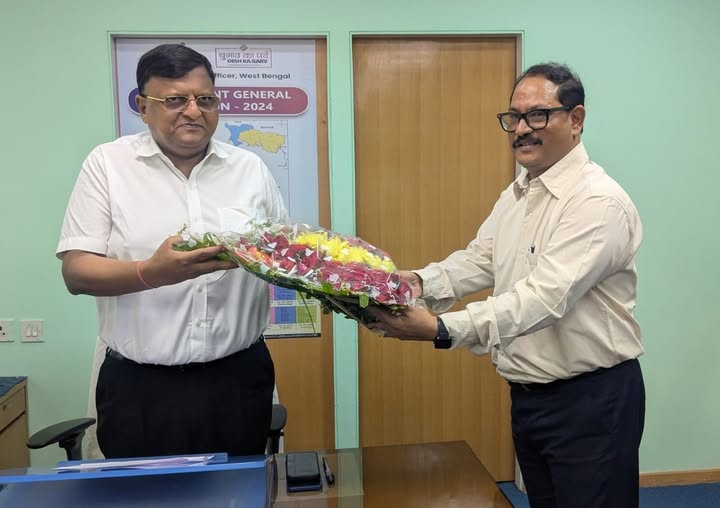QINGDAO, 26 June 2025 — In a forceful address at the Shanghai Cooperation Organisation (SCO) Defence Ministers’ Meeting held in Qingdao, China, Raksha Mantri Shri Rajnath Singh called for an unflinching collective stance against terrorism. He urged SCO member states to come together in eliminating the threat for the sake of regional peace, security, and prosperity.
“Peace & prosperity cannot co-exist with terrorism and proliferation of Weapons of Mass Destruction in the hands of non-state actors.” “We must bring perpetrators, organizers, financiers, and sponsors of terrorism to justice.” With Operation Sindoor, India exercised its right to defend against terrorism and pre-empt & deter further cross-border attacks.” “Epicentres of terrorism are no longer safe — we will not hesitate to target them.”
Confronting the Region’s Core Challenges
Addressing Defence Ministers of SCO nations, along with the SCO Secretary-General, RATS (Regional Anti-Terrorist Structure) Director, and other officials, Shri Rajnath Singh outlined the pressing challenges facing the region — trust deficit, radicalization, extremism, and terrorism.
He warned:
“Peace and prosperity cannot co-exist with terrorism and the proliferation of Weapons of Mass Destruction in the hands of non-state actors and terror groups. Dealing with these challenges requires decisive action.
It is imperative that those who sponsor, nurture and utilize terrorism for their narrow and selfish ends must bear the consequences. Some countries use cross-border terrorism as an instrument of policy and provide shelter to terrorists. There should be no place for such double standards. SCO should not hesitate to criticize such nations.”
Operation Sindoor: India’s Decisive Response
Citing the recent Pahalgam terror attack in Jammu & Kashmir, Shri Rajnath Singh underscored India’s prompt and resolute response through Operation Sindoor, reaffirming the nation’s right to self-defence and proactive deterrence.
“During the Pahalgam terror attack, victims were shot after they were profiled on religious identity.
The Resistance Front, a proxy of UN-designated terror group Lashkar-e-Taiba (LeT), claimed responsibility for the attack. The pattern of this attack mirrors LeT’s previous operations in India.“
“India’s zero tolerance for terrorism was demonstrated through its actions. It includes our right to defend ourselves against terrorism. We have shown that epicentres of terrorism are no longer safe — and we will not hesitate to target them.”
Unambiguous Stand Against Terrorism
Shri Rajnath Singh reaffirmed that the SCO must take an uncompromising stand:
“Every act of terrorism, regardless of its motivation or source, is criminal and unjustifiable.
The perpetrators, organizers, financiers, and sponsors of cross-border terrorism must be brought to justice. SCO member states must condemn this evil unequivocally.”
Addressing Emerging Threats and Radicalization
The Defence Minister acknowledged the evolving nature of threats, especially the use of new technologies by terrorist groups. He praised the work of RATS and referenced the SCO Heads of State joint statement on countering radicalization, adopted under India’s chairmanship.
He noted:
“Terrorists are increasingly deploying new-age technologies — including drones for cross-border smuggling of weapons and narcotics. Traditional borders are no longer the sole barriers. Threats such as transnational terrorism, cyber-attacks, and hybrid warfare do not respect national boundaries, and demand a unified response rooted in transparency, mutual trust, and collaboration.”
SCO’s Strategic Role in Global Stability
Highlighting the weight of the SCO on the global stage — with nearly 30% of global GDP and around 40% of the world’s population — Shri Rajnath Singh emphasized the group’s responsibility in safeguarding global stability.
He expressed concern over growing geopolitical rivalries and the erosion of multilateral systems:
“Post-pandemic, the promise of globalization is fading. Multilateralism is weakening.
Trade and technology have become tools of influence and geopolitical contestation.”
He also highlighted India’s Coalition for Disaster Resilient Infrastructure, positioning it as a model for cooperative humanitarian preparedness and global resilience-building.
India’s Commitment: From SAGAR to MAHASAGAR
Reiterating India’s foreign policy vision, the Defence Minister affirmed India’s commitment to:
SAGAR (Security and Growth for All in the Region), and
MAHASAGAR (Mutual and Holistic Advancement for Security and Growth Amongst Regions).
“We must all be in lockstep in our endeavour to strengthen stability and security in our neighbourhood.”
Concluding, Shri Rajnath Singh invoked India’s foundational global ethos:
“One Earth, One Family, One Future — this guiding principle, rooted in Vasudhaiva Kutumbakam, should shape SCO’s shared journey towards mutual understanding, security, and prosperity.”































